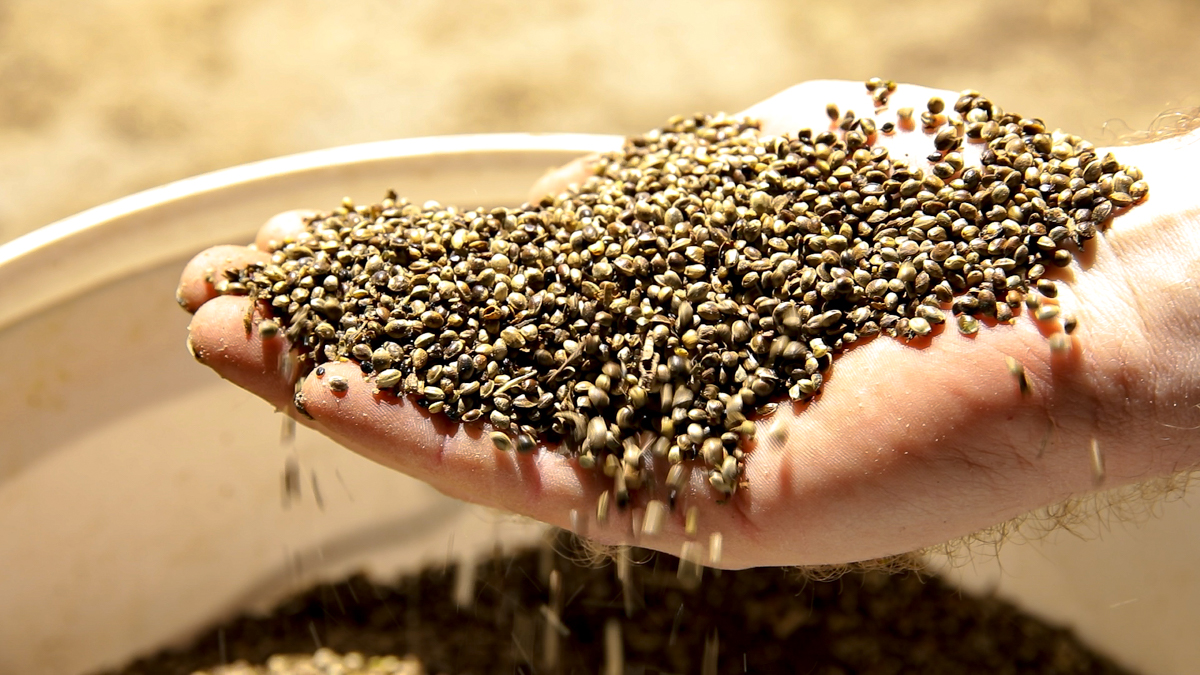Hemp – a vegetable regulated as a controlled drug – has the ability to sequester 15t of carbon per hectare and is “the most complete plant-based protein known to man”, according to Chris Allen of Hemp Federation Ireland (HFI).
Sounds like it’s hitting the buzzwords at the moment – carbon sequestration and plant protein – yet regulations here in Ireland seem to be holding the industry back.
“The difficulty around the industry in Ireland at the moment is that the regulation is all over the place so it’s poorly understood generally across state agencies in Ireland,” explained Chris.
In the meantime, an incredible global industry has developed and the European market is just about to open up and industry forecasts predict the upper value of that market will be €115 billion by 2028.
The industry needs support from the state to get off the ground in a meaningful way and take a piece of the pie according to HFI.
According to Chris, the food potentials of the crop need to remain in the hands of farmers.
“If farmers are only given the fibre end of the industry, it’s not the same economically viable proposition for rural Ireland – and there’s no valid reason to take such an economically valuable and environmentally beneficial food crop from farmers and hand it over to corporate actors.
“What’s really needed now is investment in the infrastructures that don’t exist and also knowledge sharing needs to happen so that the state can make informed policy decisions in this area.”
Chris continued on to comment that the potential money to be made from the market means there is “an awful lot of corporate interest in hemp”.
We would very much be advising our Government that this crop needs to be left in the hands of Irish farmers.
Chris stressed the importance of keeping hemp in the hands of Irish farmers as research shows that commercial hemp farming can promote rural regeneration.
“It’s so important that the Irish Government implements farm focused policies; agricultural focused policies; not corporate focused policies in this context.”
She noted that the supports aren’t there for farmers and that “the regulation seems to be sliding towards a corporate focus”.
Over the past six months, HFI has been organising a National Hemp Forum to include government agencies and all the various interconnected departments who have control either over the development or regulation of the industry in Ireland.
There needs to be a proper conversation around this with proper industry experts at the table.
What can farmers produce from hemp?
According to Chris, hemp has 10,000 different end uses, but some of the main ones include the production of CBD oil, juices, oils for salad dressings and cosmetics.
According to Chris, in food production one of the functions of hemp is to “keep you in a state of optimal well-being”.
“It is the most complete plant-based protein known to man. It has all nine essential amino acids, plus it has omega-3, 6 and 9.”
Hemp helps the environment
As mentioned at the top of the article, hemp has the ability to sequester 15t, depending on biomass production and other factors.
It can be grown without the use of herbicides, pesticides or fungicides and it can benefit biodiversity and ecosystems. Hemp fits in well with some of the suggested parameters outlined for the new Common Agricultural Policy (CAP), according to Chris.
It also has very good bioremediation properties, which means it can clean toxins and contaminants from the soil.
Increased interest
In recent years, the number of farmers growing hemp has increased substantially, from eight farmers four years ago to 77 in 2019.
It’s [the number of growers] rising and rising and this year I would expect it to be huge.
Chris noted that HFI ran some outreach meetings before at the end of last year and hundreds of people attended from all parts of the country to learn about hemp and how to grow the crop.
“Ireland is quite unique because we have one of the earliest complete supply chains in Europe,” Chris added.
Ireland’s climate is really well suited to hemp production, she noted.
“Even though it’s a very tiny industry we have some of the foremost expertise in this industry in Europe in this country.
“They are the people who started up HFI, which is a non-profit body, so our aim is to encourage the development of the industry in Ireland so that it gets developed in the way that it should to benefit Irish farmers and local communities.”
Need a licence to grow
The process of getting a licence to grow hemp has now become more farmer friendly. Licences can now be applied for at anytime during the year and last for a full calendar year, according to Chris.
Hemp can be planted when soil temperatures are at a minimum of 10°. This is usually in May and even June so there is still time to apply for 2020.
“The stumbling blocks are probably the way the plant is regulated. It’s not regulated as a normal agricultural crop. It’s regulated as a controlled substance.”
Licences are obtained from the controlled drugs section of the Health Products Regulatory Authority (HPRA).
“It’s actually a vegetable, but because it’s a member of the cannabis family it was put in with those controlled drugs.”
The 2018 farm bill in the US took the crop out of the control of the Food and Drug Administration (FDA) and put it back into agriculture.
“Hopefully, our Government will be doing the same thing to fully engage the farmers and get the industry moving,” Chris added.
The Hemp Federation Ireland conference entitled ‘Growing hemp in Ireland’ is on today, Thursday, March 12, in Tullamore and is being run in association with the National Organic Training Skillnet.








